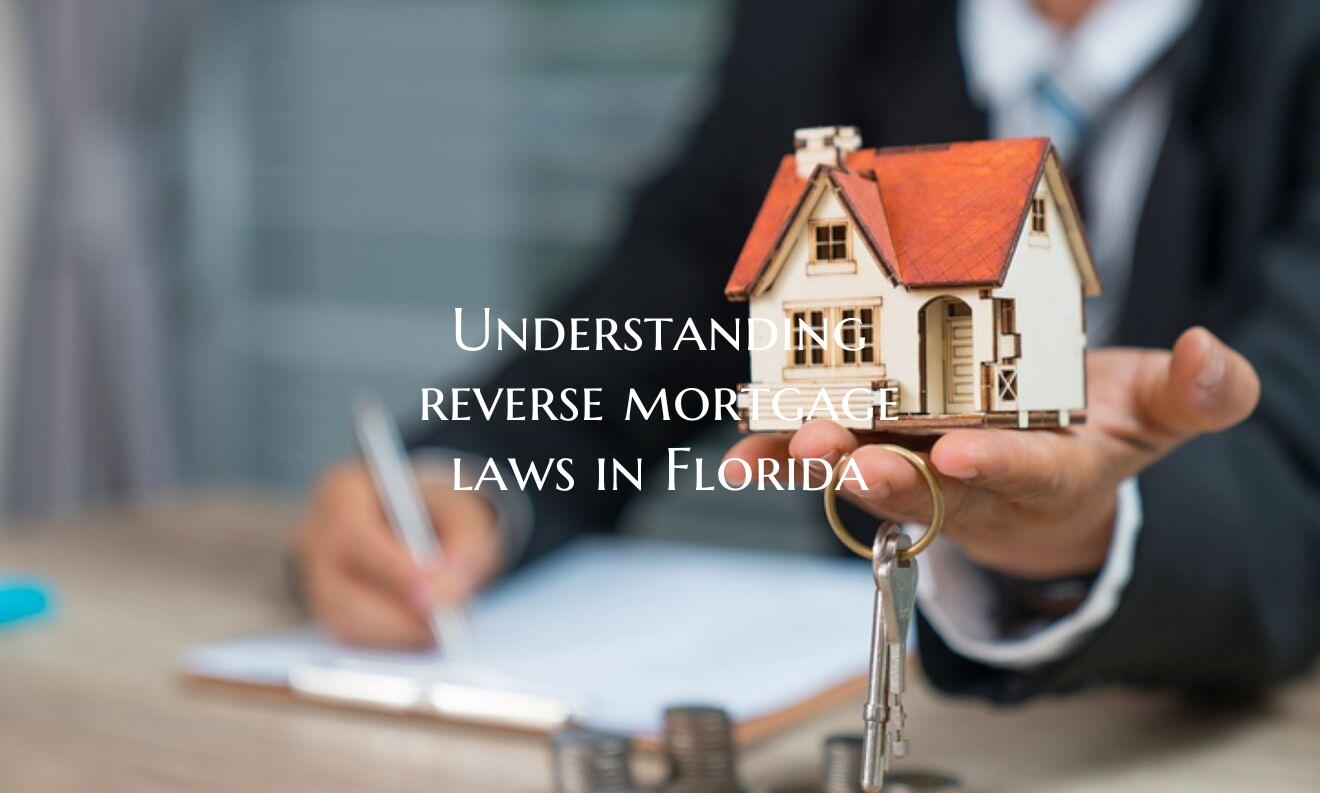Understanding reverse mortgage laws in Florida

Introduction: Reverse mortgages can be a valuable financial tool for seniors looking to access their home equity while remaining in their homes. However, it is crucial to understand the laws and regulations governing reverse mortgages in Florida to ensure a smooth and secure financial transaction. This article will provide an overview of the key laws regarding reverse mortgages in Florida to help seniors make informed decisions.
Florida Reverse Mortgage Requirements: 1. Age Requirement: In Florida, to be eligible for a reverse mortgage, you must be at least 62 years old. This age requirement is in line with federal regulations governing reverse mortgages.
2. Counseling Requirement: Before obtaining a reverse mortgage in Florida, borrowers are required to undergo counseling from a HUD-approved counselor. This counseling session aims to ensure that borrowers understand the terms and implications of a reverse mortgage.
3. Property Qualifications: The property used for a reverse mortgage in Florida must be the borrower's primary residence. Vacation homes or investment properties do not qualify for a reverse mortgage.
4. Repayment Rules: Under Florida law, reverse mortgage borrowers are not required to make monthly mortgage payments. The loan is typically repaid when the borrower moves out of the home, sells the property, or passes away. The loan balance is then settled through the sale of the home, with any remaining equity going to the borrower or their heirs.
5. Consumer Protections: Florida has implemented various consumer protection laws to safeguard seniors who are considering a reverse mortgage. These laws include mandatory disclosures, cooling-off periods, and restrictions on lender practices to prevent abusive lending practices.
6. Non-Recourse Loan: Reverse mortgages in Florida are considered non-recourse loans, which means that the borrower or their heirs will not have to pay more than the appraised value of the home at the time of repayment. This provides a level of protection for borrowers and their families.
Conclusion: Understanding the reverse mortgage laws in Florida is essential for seniors who are considering this financial option. By being aware of the age requirements, counseling obligations, property qualifications, repayment rules, consumer protections, and non-recourse nature of reverse mortgages in Florida, seniors can make informed decisions to tap into their home equity responsibly. Consulting with a financial advisor or a HUD-approved counselor can provide further guidance on navigating the complexities of reverse mortgages in Florida.
